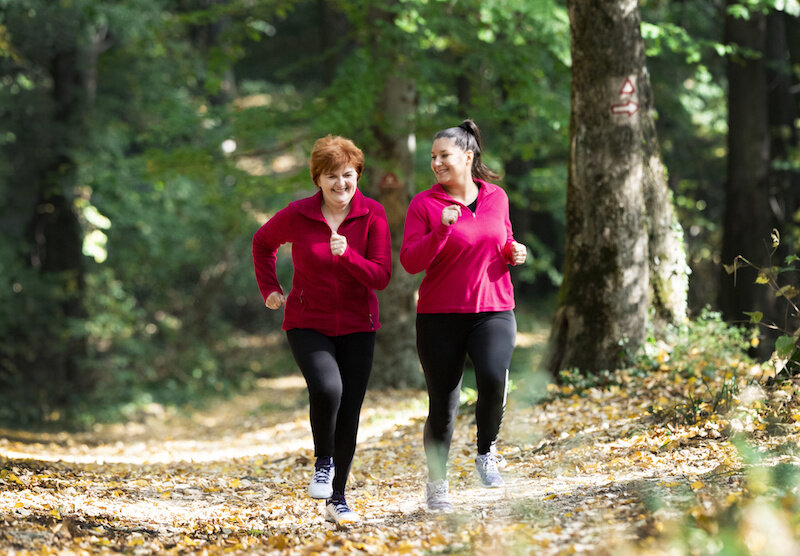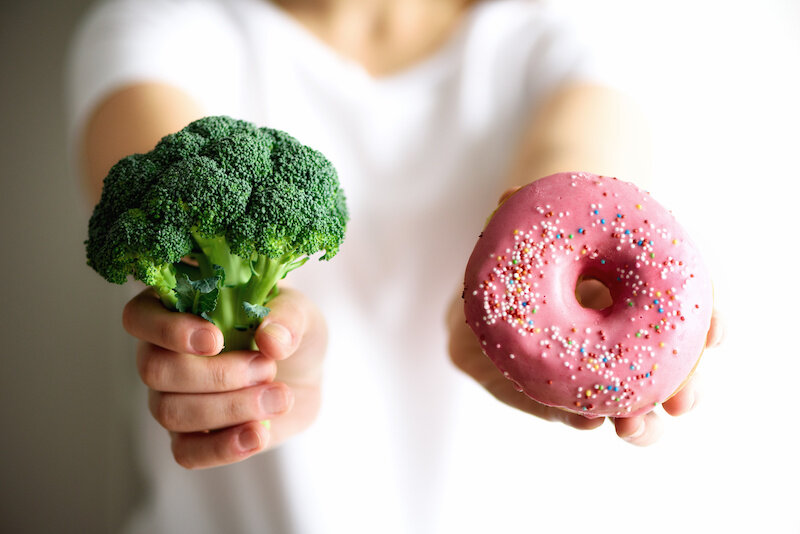How Diet And Exercise Can Help Perimenopause And Menopause Symptoms
Before menopause, I used to be able to: eat the same amount and food choices as my 6’2” 210 pound husband, use chronic cardio to “erase” excessive alcohol and sugar, stay up late (past 10pm) most nights watching TV or working on the computer, work super hard so friends would like me, worry about the number on the scale, use exercise as my sole method for stress relief, try to fix people around me, and push aside my stress to deal with it “another time.”Now, in my early 50’s (and my 4th official year of menopause), not only have I a learned to develop a growth mindset, I have changed my diet and exercise program and know with my healthy lifestyle there is no need for a scale in my house as well. Both have helped me gain confidence in how I approach these years.  I encourage you, dear reader, to reconsider your diet and exercise program, and also your ability to accept your identity, your body (it’s size and scale weight) and what you want from this blessing we call life. The changes going on in your body during perimenopause and menopause combined produce the biggest physiological change since puberty. Naturally, it is a good time to reconsider and get curious about how you fuel yourself…right?!Last week you may have learned more about hormone replacement therapy and whether or not you are a candidate. Food and exercise are another place to take stock! How you fuel yourself now is essential to managing pesky menopause symptoms. Our weight and waistlines are our most obvious signs of menopause. They grow. As Christiane Northrup, MD says, “…we have to make changes in our diets and exercise regimes If we expect to negotiate menopause without 10 to 20 pounds or so of extra baggage, weight that, in addition to wreaking havoc with our appearance, is also a well-documented healthy risk (heart disease).”Again, midlife weight gain is the result of the tremendous hormonal shift taking place which also causes a huge metabolic change. Add to this a lifestyle of chronically high stress and you can be assured of weight gain in all the wrong places.In addition to hormonal changes during perimenopause, our nervous systems are literally being re-wired - the intuitive centers in our brains are all changing. There are many changes you don’t see that will also benefit from an educated diet and exercise program, the greatest being your heart. Heart disease still claims more lives than any other disease and five times more than breast cancer. So, taking care of that heart is essential. Many do not realize they have heart disease until it’s well established.
I encourage you, dear reader, to reconsider your diet and exercise program, and also your ability to accept your identity, your body (it’s size and scale weight) and what you want from this blessing we call life. The changes going on in your body during perimenopause and menopause combined produce the biggest physiological change since puberty. Naturally, it is a good time to reconsider and get curious about how you fuel yourself…right?!Last week you may have learned more about hormone replacement therapy and whether or not you are a candidate. Food and exercise are another place to take stock! How you fuel yourself now is essential to managing pesky menopause symptoms. Our weight and waistlines are our most obvious signs of menopause. They grow. As Christiane Northrup, MD says, “…we have to make changes in our diets and exercise regimes If we expect to negotiate menopause without 10 to 20 pounds or so of extra baggage, weight that, in addition to wreaking havoc with our appearance, is also a well-documented healthy risk (heart disease).”Again, midlife weight gain is the result of the tremendous hormonal shift taking place which also causes a huge metabolic change. Add to this a lifestyle of chronically high stress and you can be assured of weight gain in all the wrong places.In addition to hormonal changes during perimenopause, our nervous systems are literally being re-wired - the intuitive centers in our brains are all changing. There are many changes you don’t see that will also benefit from an educated diet and exercise program, the greatest being your heart. Heart disease still claims more lives than any other disease and five times more than breast cancer. So, taking care of that heart is essential. Many do not realize they have heart disease until it’s well established.
Exercise
 Below are my exercise tips to help you find the program that works for you as you travel the perimenopause and menopause road:
Below are my exercise tips to help you find the program that works for you as you travel the perimenopause and menopause road:
- • The more we tend to our heart, the more we take care of our brain, which is the root of menopause symptoms. Taking care of both is a wise decision.
- • The AHA Heart Assn recommends 60 minutes of exercise every day to lose weight and 150 minutes of moderate aerobic or 75 vigorous minutes per week of aerobic exercise to prevent heart disease.
- • Add strength training to your fitness program. It helps to build muscle. A few of the many benefits for this phase of your life are:
- • Muscle is more efficient at burning calories. We must maintain what we have and build more, as much as we can since...
- • We lose muscle more rapidly during perimenopause and menopause due to declining estrogen
- • Muscle helps manage insulin levels, burns carbohydrates and fat, and helps with bone health
- • Muscle mass protects your bones and your heart and your quality of life
- • Strength training has been proven as a method to decrease symptoms of depression and anxiety
- • Increased balance and overall strength - less falls and fewer fractures
- • Helps you feel strong and, done correctly, strength training can lead to stronger decision-making and lifestyle choices
- • I recommend increasing strength training to at least twice per week
- • Reminder: exercise is stress, so adding stress-induced bootcamps, spin, high impact and cardio-centric exercise onto your already stressed body should be to compliment a smart strength training program or replaced with a smart and paced program.
Diet
 Due to the huge changes taking place in your body (and brain), we are no longer 20 or 30 years old and we must adapt our lifestyle accordingly.I suggest the following:
Due to the huge changes taking place in your body (and brain), we are no longer 20 or 30 years old and we must adapt our lifestyle accordingly.I suggest the following:
- • Eat whole foods
- • Eat only when you are hungry and avoid snacking
- • Stop eating when you feel 80% full (it takes your body a little time to catch up to feeling full)
- • Chew your food thoroughly
- • Stop using food as a reward or using food to help you get through a tough day
- • Sit while eating
- • Focus on portion size, not calories
- • Avoid processed foods and sugar
- • Gain knowledge of your stress eating triggers and adjust your diet and timing accordingly
- • Consume nutrient dense foods, including healthy fats, and 5 fruits and veggies daily
- • No need for deprivation dieting. This is likely the most active time of your life (kids, partner, parents, sibling, work, colleagues, etc.)
- • And, even though there is a lot of hype around soy as a preventative or healing resource, there is still no scientific or medical proof eating soy helps decrease hot flashes. In studies, the average is 30% see improved symptoms.
Think about the changes going on in your body. Think about how now is the time to get the rest of your life- and wellness - in order. Think about how your brain is literally exploding to keep pace with the change its enduring. And let me know if you have any questions! You can reach me directly at contact@alexandriawellness.com.

